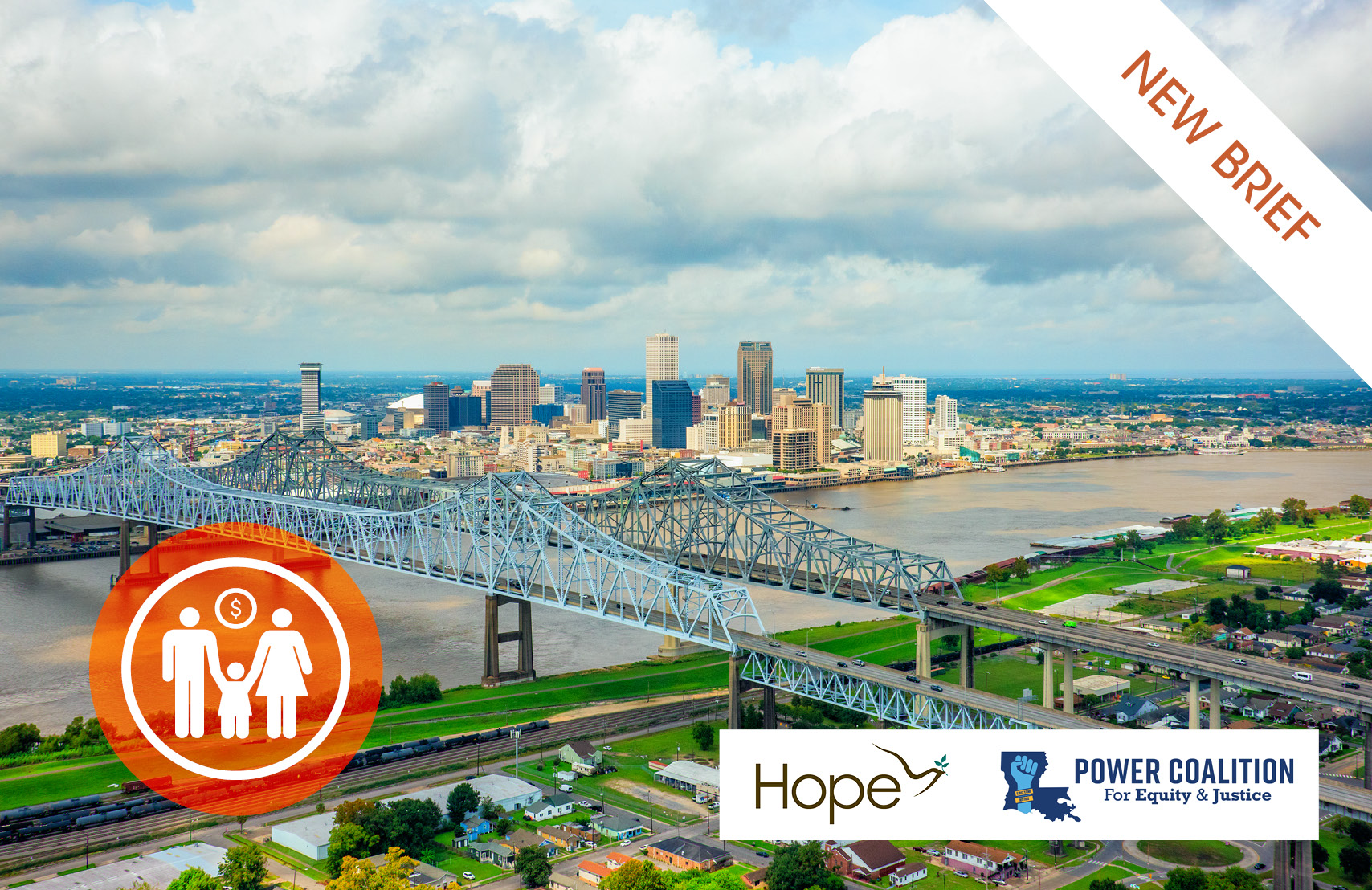Racial Inequities in the Distribution of Louisiana’s Coronavirus Relief Funds: A Report for Community Leaders
April 8th, 2021
Calandra Davis, Hope Policy Institute
George Barlow, Power Coalition for Equity and Justice
Updated April 16, 2021
A year later, local governments and Louisianans are still spiraling from the economic crisis caused by the Coronavirus pandemic. In the federal relief known as the Coronavirus Aid, Relief and Economic Security (CARES) Act, Congress included a $150 billion relief fund to assist tribal, state, and local governments during the public health and economic crisis. This fund, known as the Coronavirus Relief Fund, covered a broad range of expenses, such as payroll, personal protective equipment, rental assistance, paid sick leave, contact tracing and many other things. However, the relief funds could not cover lost revenues. Under the federal regulations guiding the use of the fund, it could only be used for expenses directly related to COVID-19 and not already accounted for in local budgets approved before March 27, 2020. As originally passed by the CARES Act, states had until December 30, 2020 to spend the Coronavirus Relief Funds. In a separate relief package passed on December 27, 2020, Congress extended the funds’ deadline to September 2021, but the vast majority of funds had already been expended by the time this change occurred.
Louisiana received $1.8 billion from the Coronavirus Relief Fund. On June 12, 2020, Gov. John Bel Edwards signed Senate Bill 189, allocating 45% of the funds, or $811 million, to local governments and small business relief. Local governments were allocated $511 million of the funding. The 64 Louisiana parishes had to apply to Louisiana’s Division of Administration for funding and provide documentation of their expenditures to receive the funds as a reimbursement. There were three application periods, with the last period ending on October 15, 2020. To spread the resources across the parishes, Louisiana pre-determined an allocation for each parish, based on population size and COVID cases, allowing counties to seek reimbursement of expenses up to that allocated amount. This reimbursement structure meant that parishes already struggling to access resources before COVID-19 had trouble getting the relief funds, particularly majority people of color, rural and persistent poverty parishes.
Read the full brief here.


